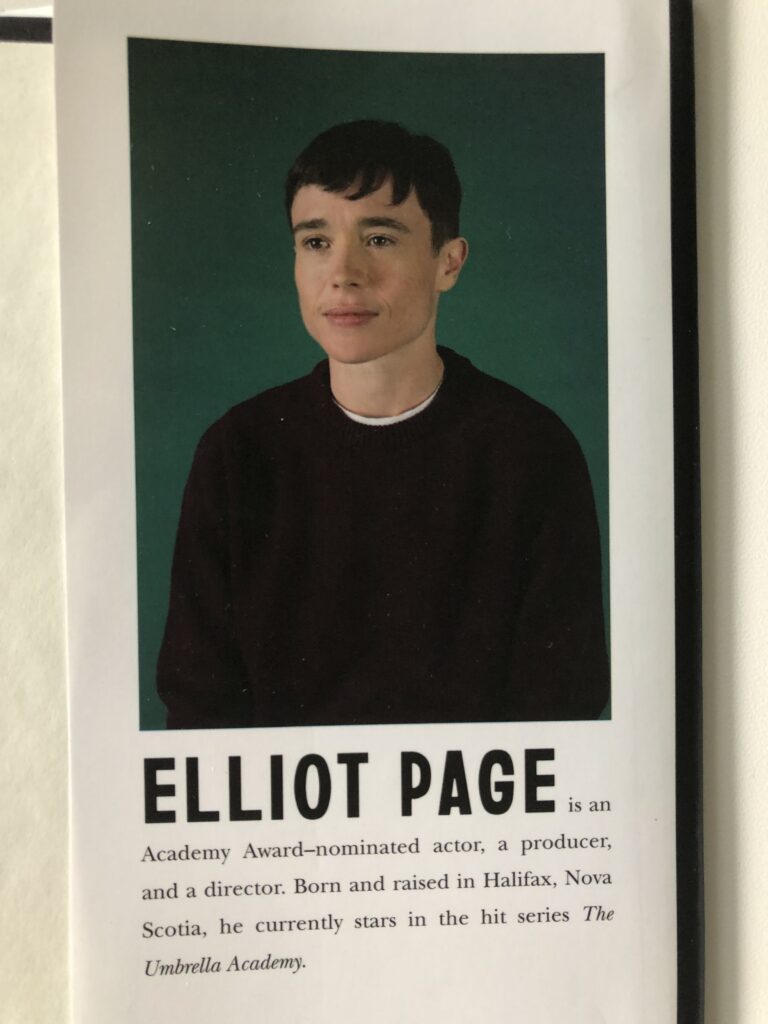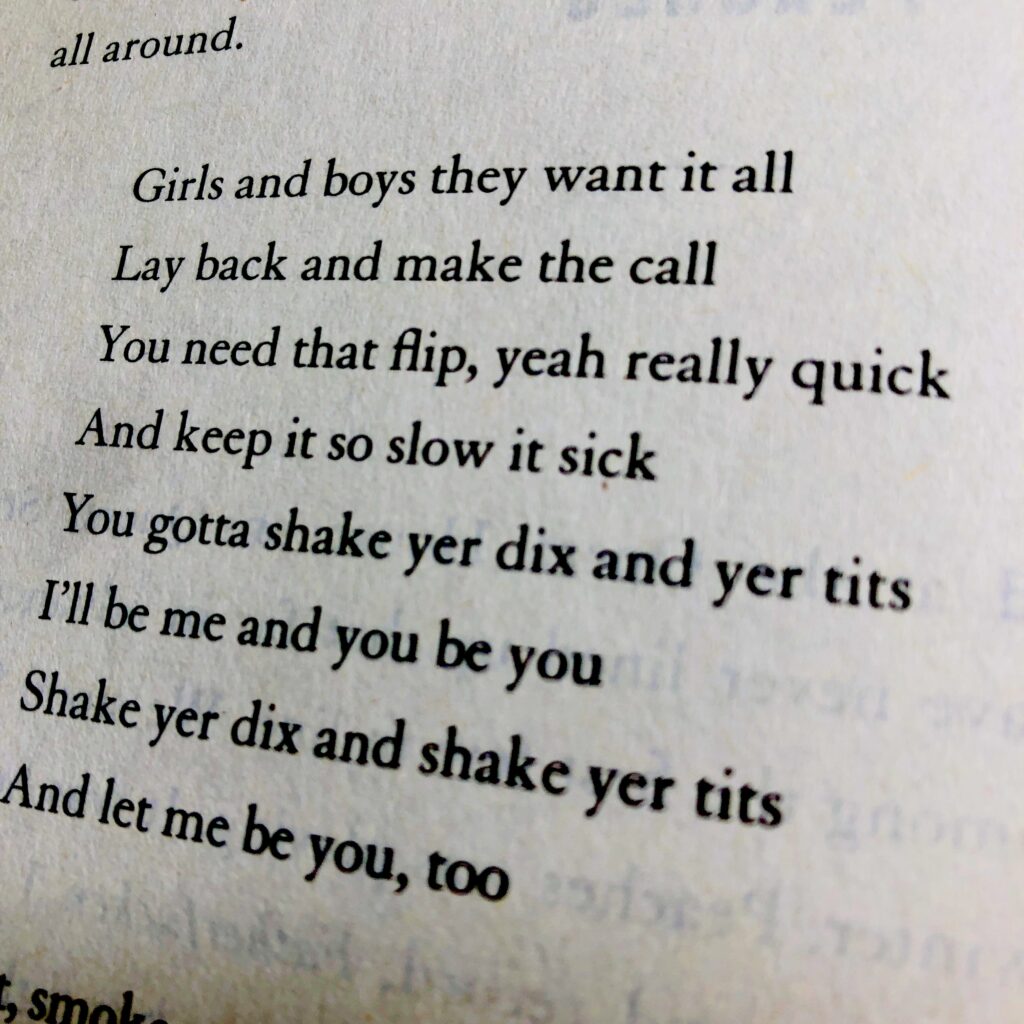A Memoir by Elliot Page.
Note: This review refers to Ellen Page as well as Elliot Page later on in the article. While this constitutes dead-naming, it is done in the spirit in which the book was written and is intended to assist in distinguishing the periods before and after coming out as a trans man.
Elliot Page’s memoir opens with their first, unsuccessful trip to Reflections, a bar for queer people, and follows them as they navigate homophobic slurs from schoolmates as well as exposure to the Hollywood film industry; an industry that pushed to keep Ellen, now their dead-name, as feminine as possible.
While Elliot struggles with coming out, the tabloids, including Michael Musto (Village Voice, NYC), wasted no time speculating on their sexuality in the most public of ways, more often than not insinuating Ellen is a lesbian. This trend continues until the Toronto International Film Festival blockbuster Juno enters mainstream consciousness. This widespread attention prompts studios, producers, and industry folk to go out of their way caution Ellen not to come out, threatening that it would ruin their career. And just to shake things up, one of Elliot’s fans turns into a full blown stalker, followed by a succession of men and women trying, some successfully, to get into their pants.

With each day, Ellen gets increasingly more comfortable in their new identity while, in tandem, the threats of gay bashings escalate. In response, Ellen develops coping strategies that materialize in the form of an eating disorder and self-harm, giving way to bashing their head with either a hairbrush, or worse, their bare fists.
Navigating a complex sex life, Ellen gets invited to their first Oscars for their role in Juno. A succession of borderline codependent relationships follow, some with men but some of the more meaningful ones, with women.
Ellen, now Elliot, does a fair amount of jumping back and forth through time which is an interesting, if not slightly distracting, choice. At one point Ellen dons a Speedo, lent to her by a friend’s dad, and they go topless to a water park. This is the first we learn of their top surgery.
While still navigating their sexuality through several relationships, Elliot becomes increasingly more certain of their trans-ness, yet still finding discomfort when looking at their reflection in the mirror. At the dawn of the pandemic lockdown, and while closing out a divorce, Elliot returns to Halifax and has to quarantine for two weeks, which they do in a friends cottage, isolated from the world of press as well as their obligations to the now popular Netflix series The Umbrella Academy. It is through this series that Elliot learns to embrace their transition, fully supported by the studio and fellow cast members.

Elliot’s memoir ends with their decision to finally get top surgery, and begin testosterone injections, completing a life long desire to inhabit the body they believe would free them from all of their self-hate and loathing. Pageboy acts as a profound statement of what it means to transition, to discover oneself in a world that would rather erase the trans experience.
If you haven’t watched The Umbrella Academy, consider doing so while reading this memoir. It’ll give you greater context into Elliot’s bravery in the midst of hate and backlash over his decisions; a decision that does not fully reconcile their journey, but does paint an honest picture of what it’s like to take such a journey in the first place. This memoir is a great read and references Toronto at several junctures throughout the book, including the infamous Opera House where they experience a show by musician “Peaches”, one that leaves Elliot with a sense of purpose, and quite literally blood on his hands. •
Originally published on My Gay Toronto. Edited by Maria Crawford. Photos by Raymond Helkio.
Raymond Helkio writes reviews for The Reading Salon and is a theatre artist, writer and poet living on the edge of insanity. Get in touch.

